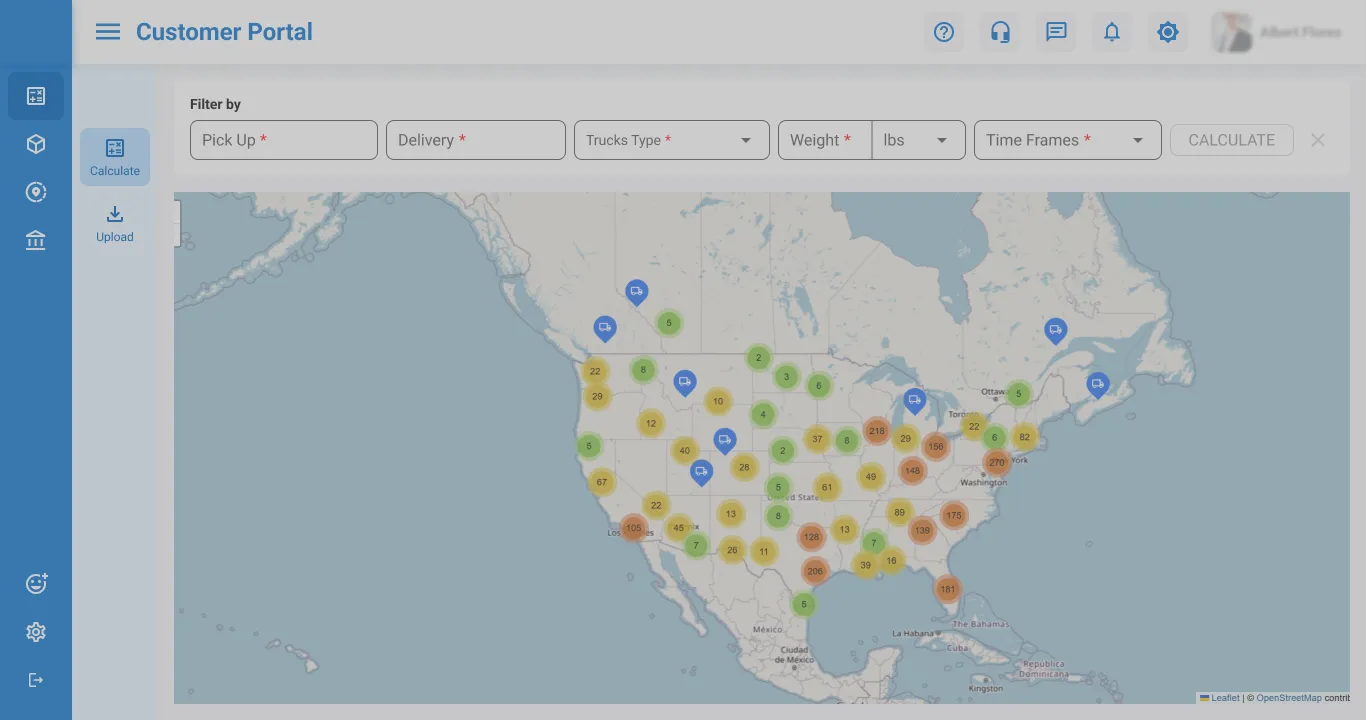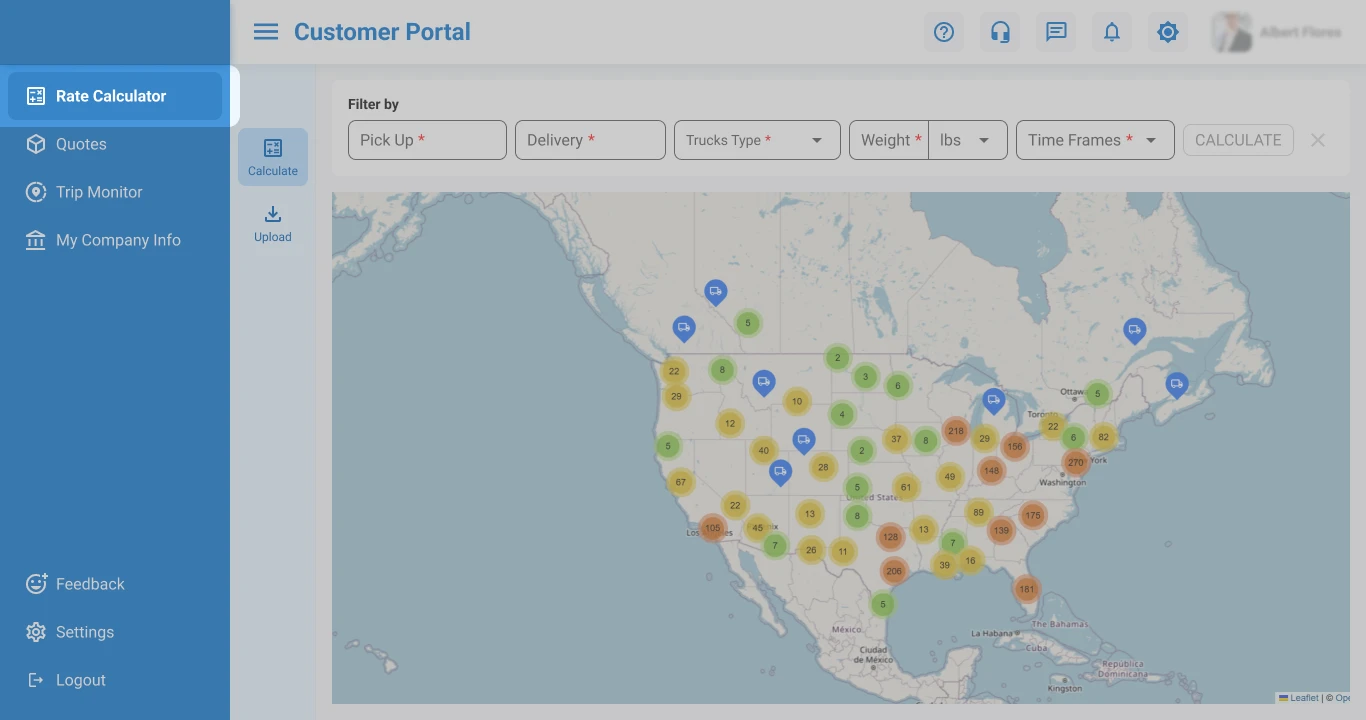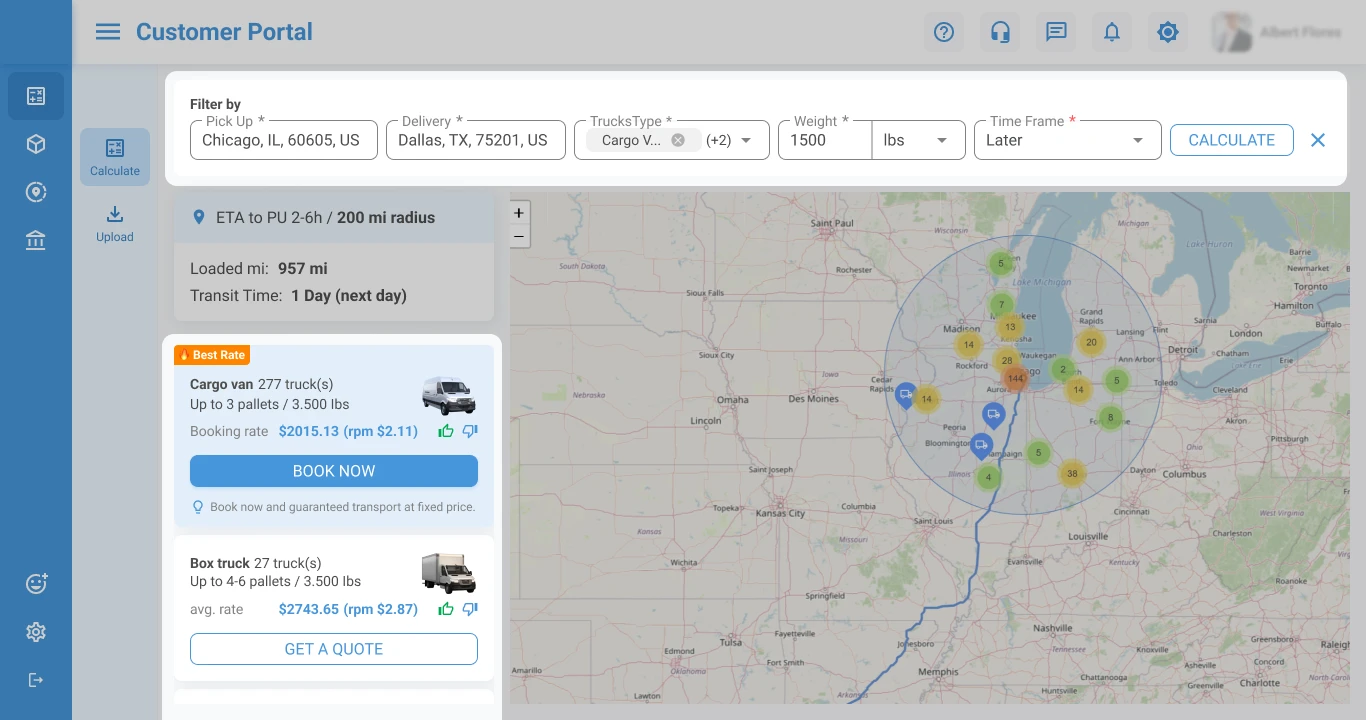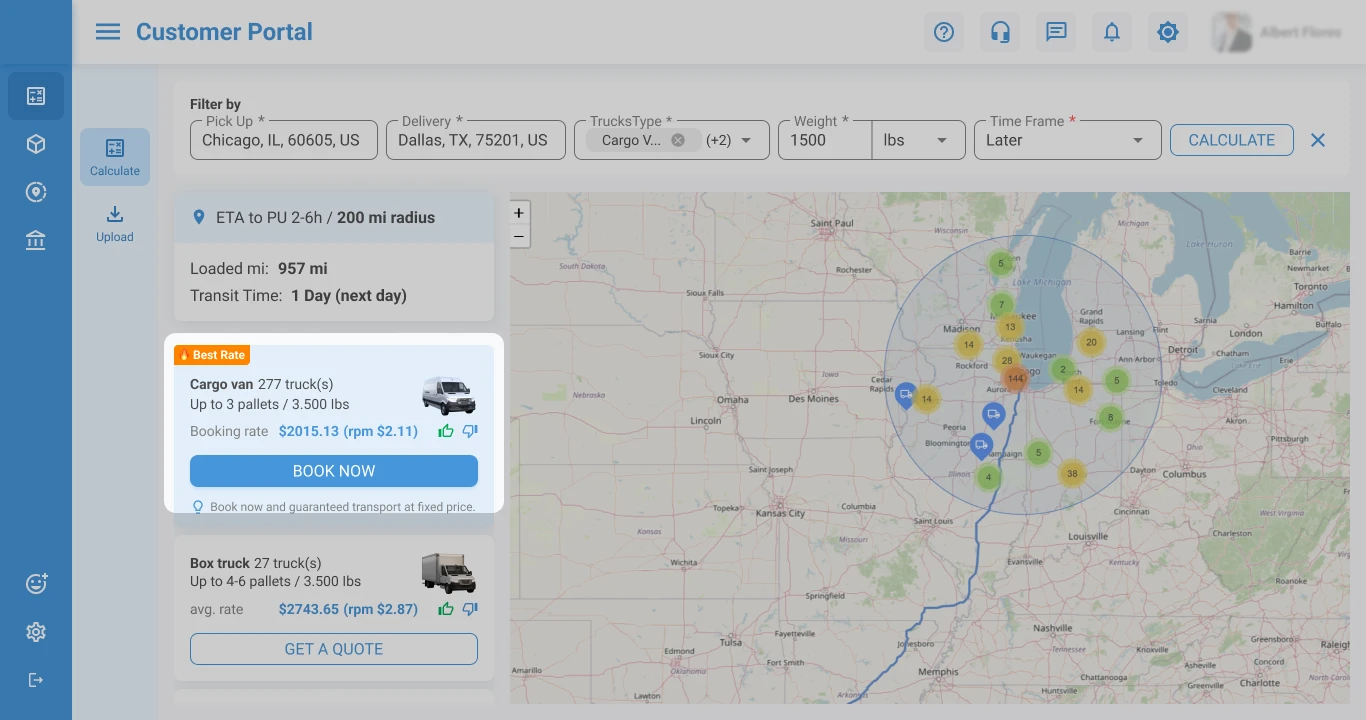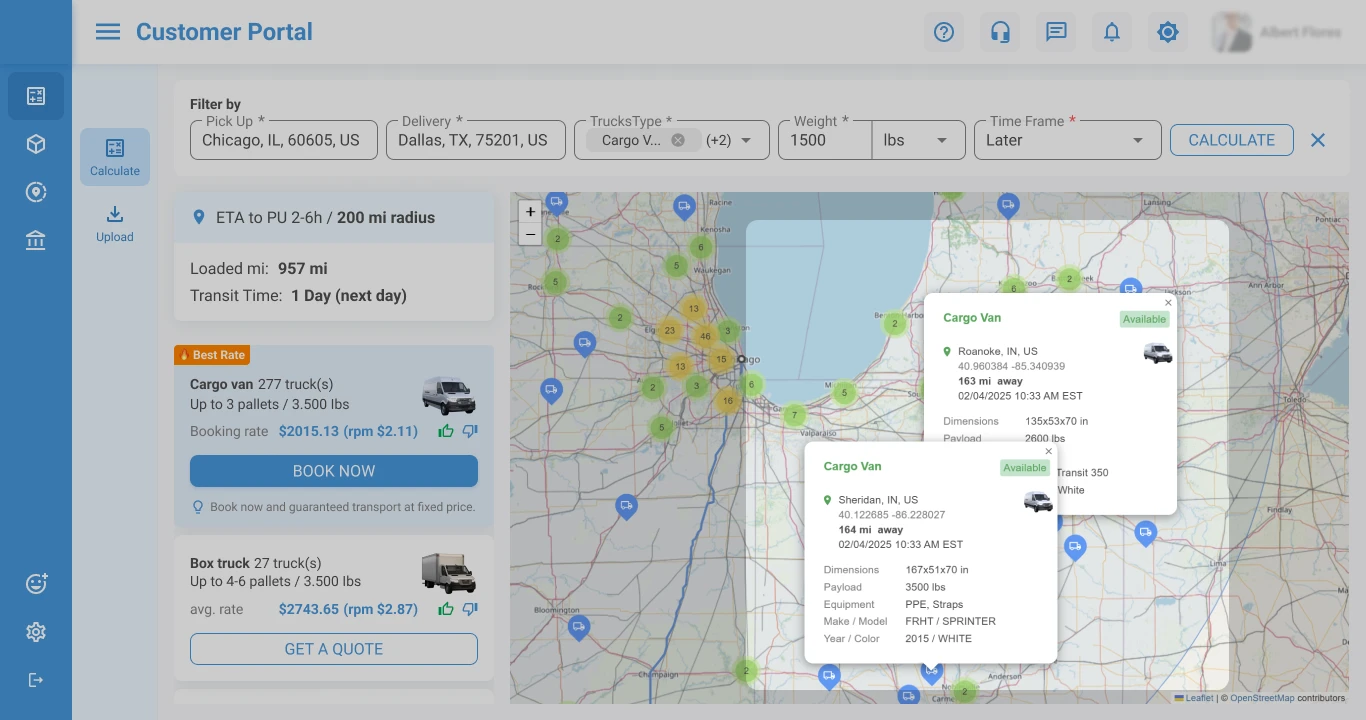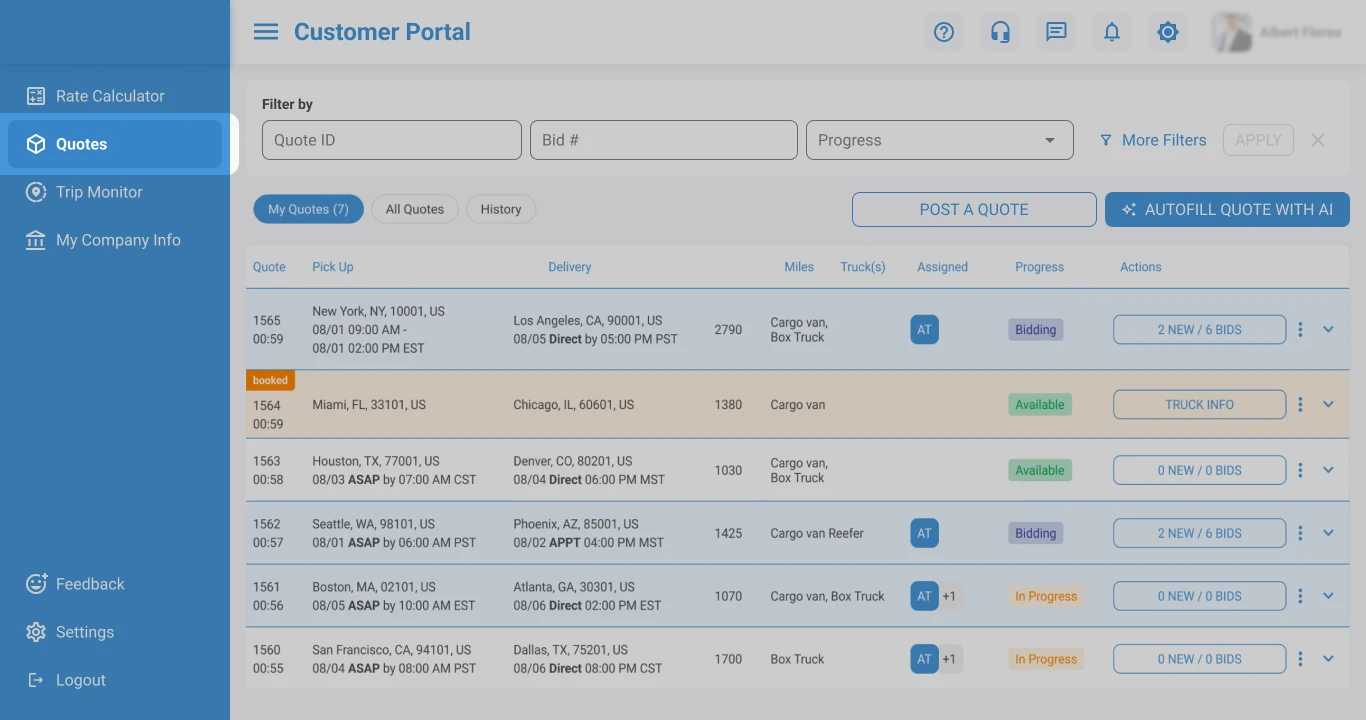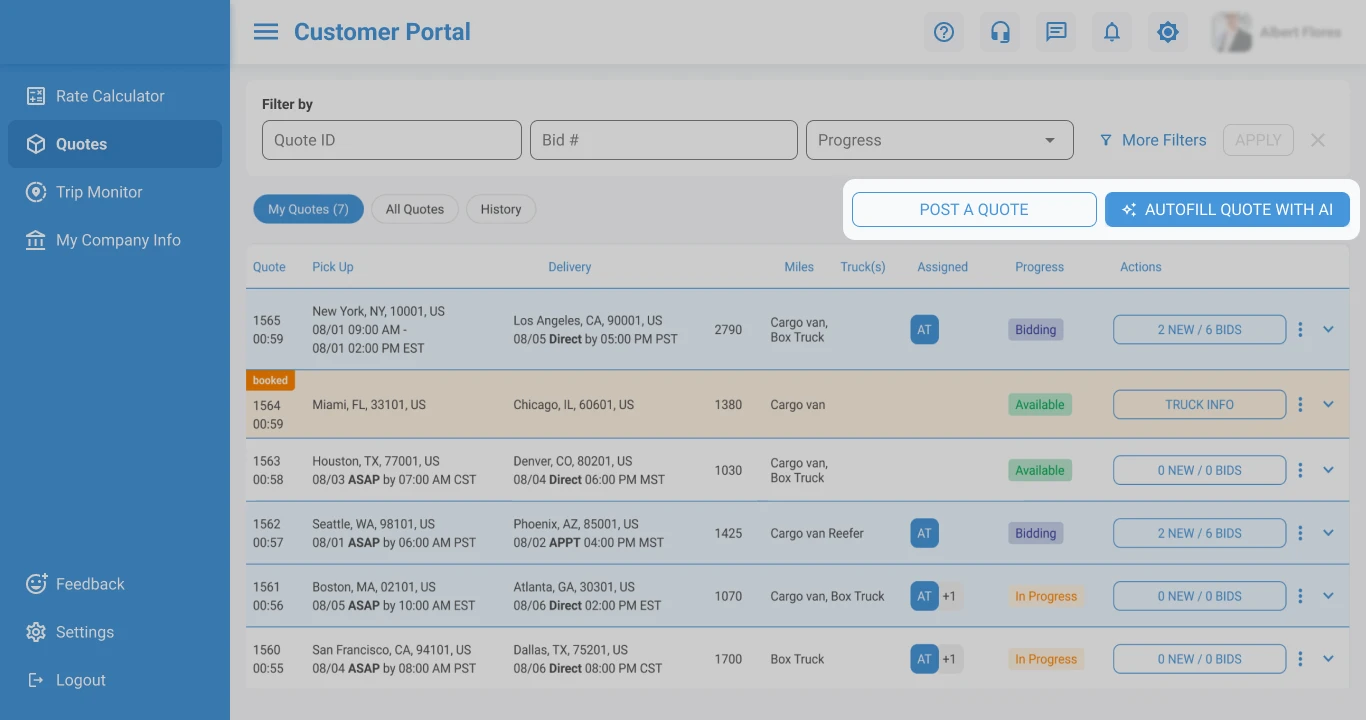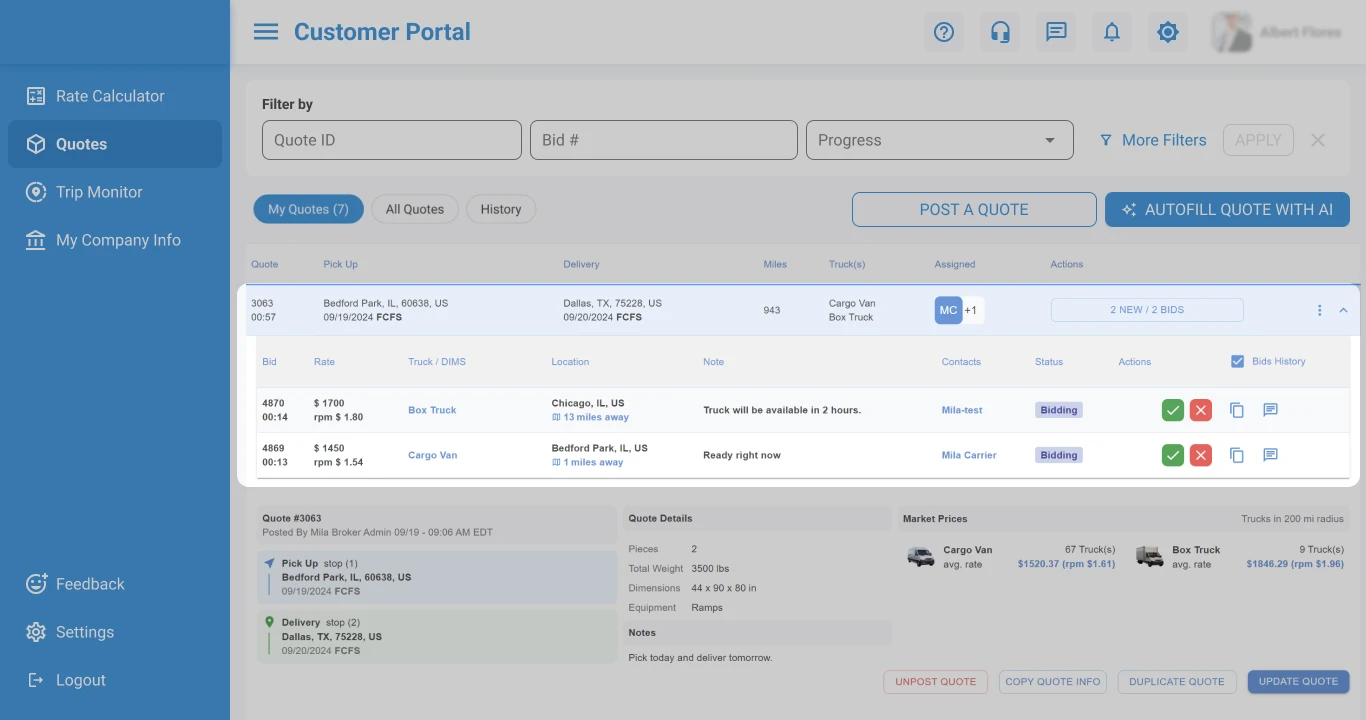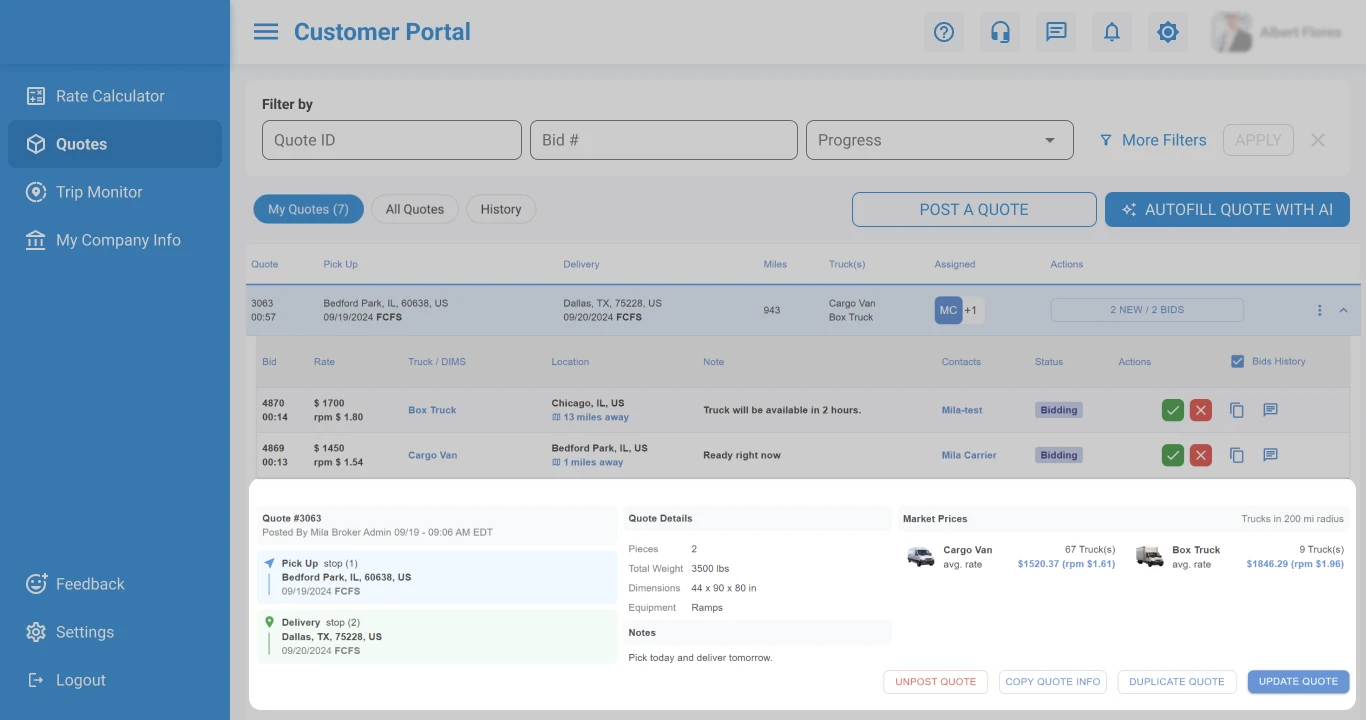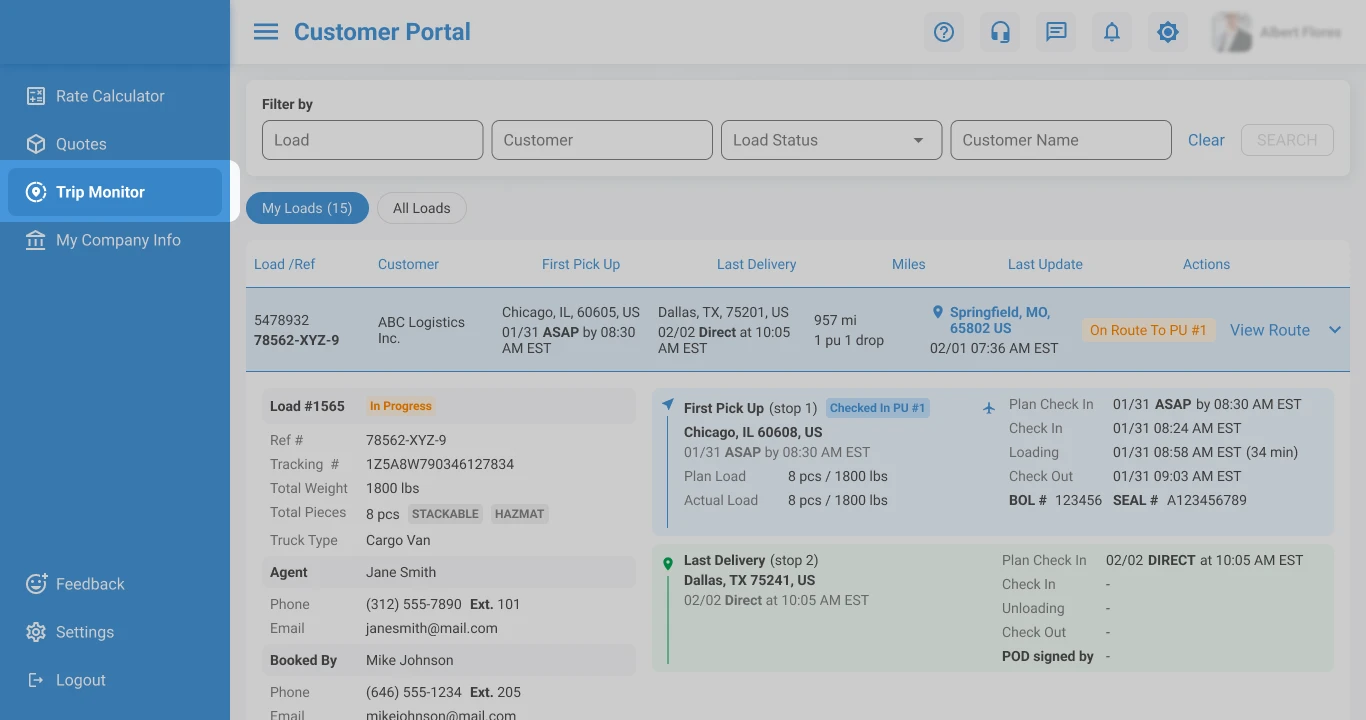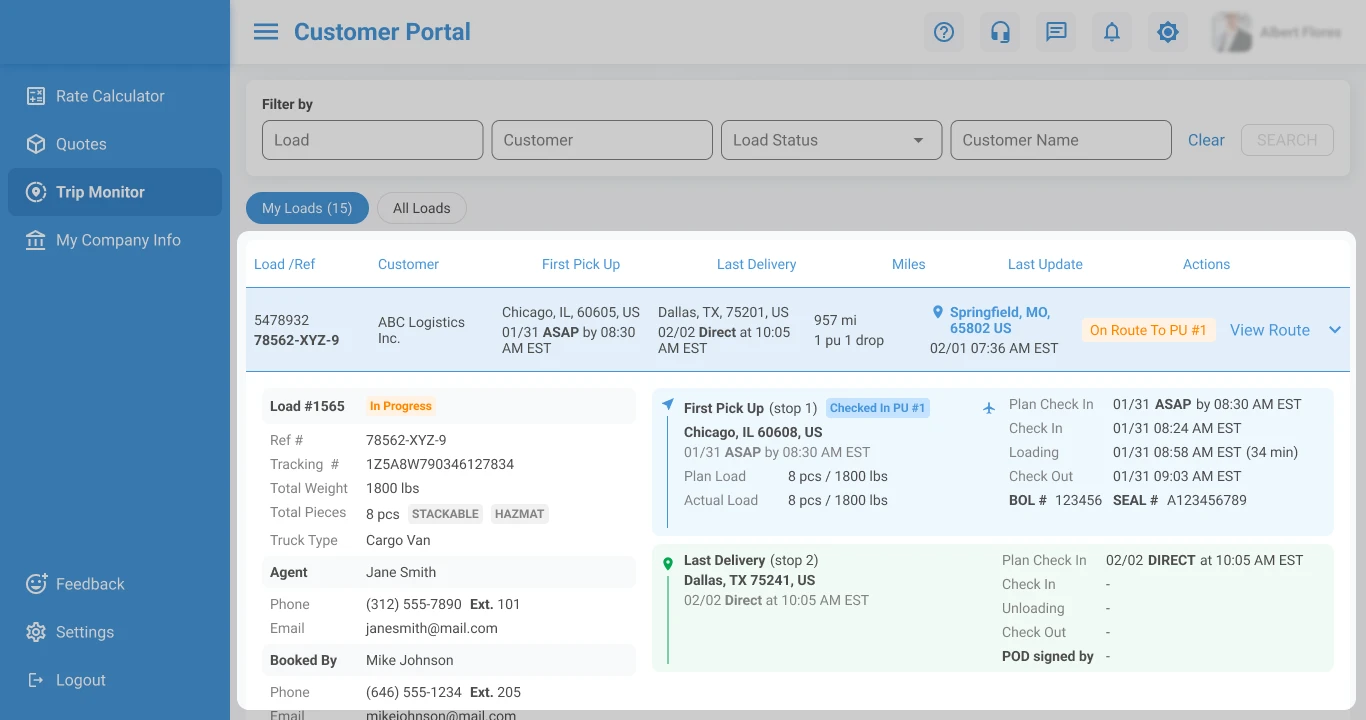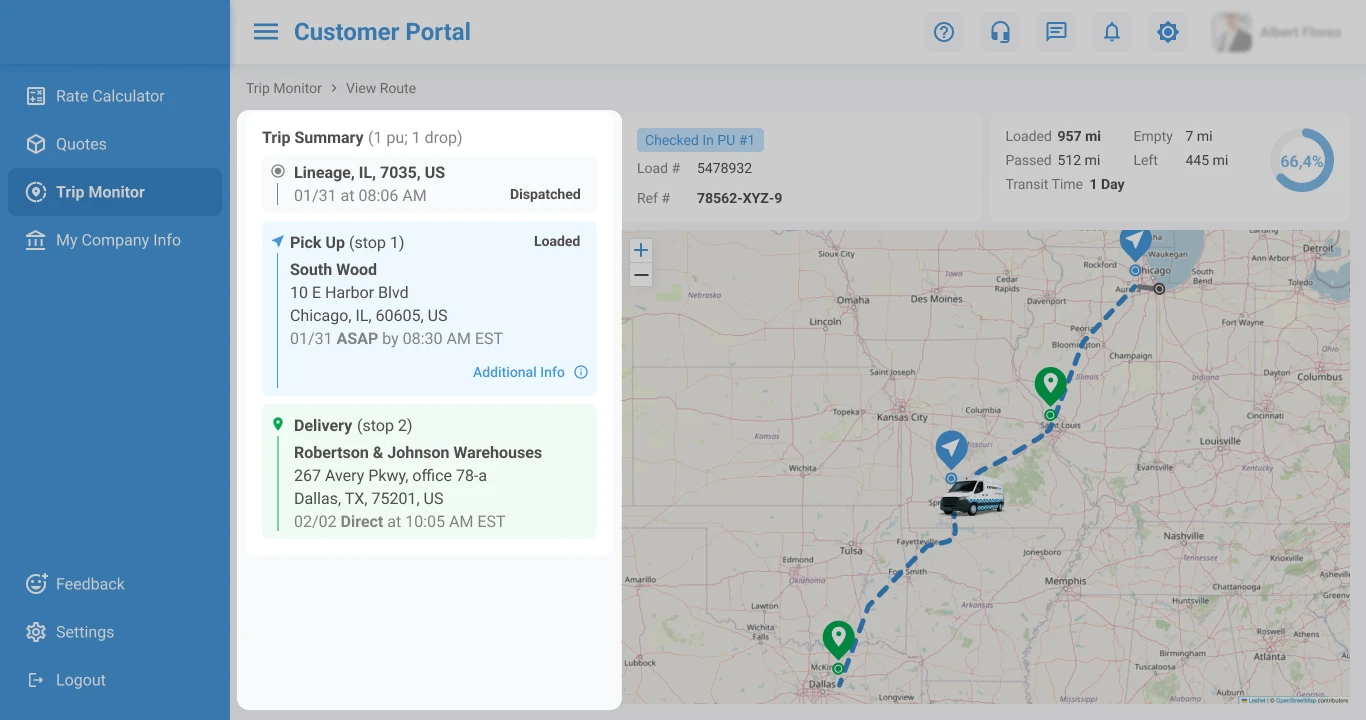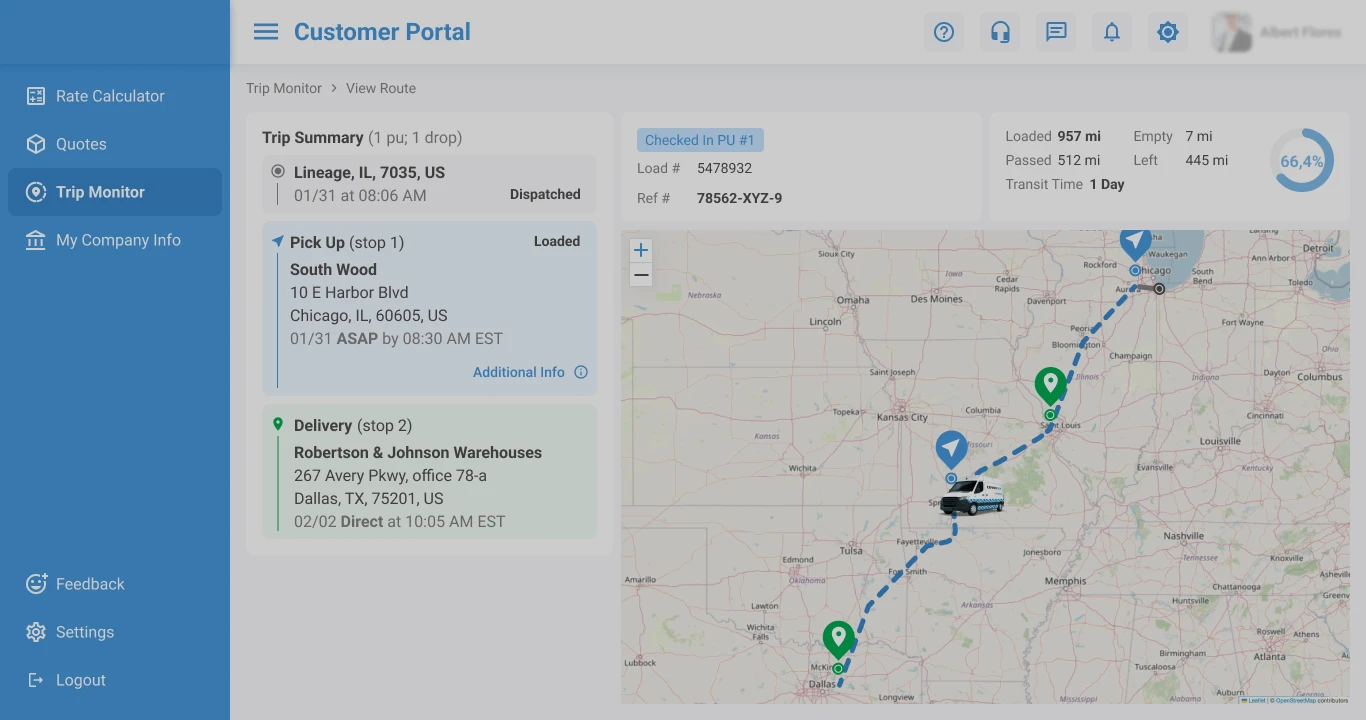
Double Brokering: Risks and Solutions
Double brokering is a complex logistics phenomenon, often accompanied by misconceptions and additional risks. At its core, it involves a scenario where a freight broker transfers the responsibility to another broker instead of directly assigning a shipment to a carrier. This transfer, typically unbeknownst to the shipper, creates layers of intermediaries, leading to a range of unwanted operational and ethical challenges, affecting trust, accountability, and efficiency within the supply chain.
In this article, we’ll identify the causes of double brokering and its potential hazards and offer practical solutions to mitigate its impact on the logistics industry. This analysis should give a clearer understanding of double brokering and provide practical strategies for professionals to deal with it.
Understanding Double Brokering
At the intersection of logistics and business ethics, double brokering appears as a distinctive practice, often blurring the lines of standard operational procedures. It fundamentally diverges from the norm by involving a secondary broker who reassigns a shipment initially entrusted to another broker. While not illegal, this layered arrangement diverges from the direct broker-to-carrier relationship that typifies standard freight logistics practices.
Historically, the logistics industry has evolved with an emphasis on straightforward interactions between shippers, brokers, and carriers. The emergence of double brokering reflects a response to the growing complexities and demands of global supply chains. It's often seen in scenarios where the original broker is unable to find a suitable carrier and thus outsources this task or when brokers seek to maximize profits by playing an intermediary role. This practice, through offering short-term solutions, raises concerns about transparency, accountability, and quality control, challenging the traditional ethos of the logistics sector.
The Legal and Ethical Landscape
While not explicitly illegal in all jurisdictions, double brokering operates in a gray area that intertwines legal and ethical considerations. Legally, the primary concern revolves around contractual obligations and transparency. Since double brokering often occurs without the knowledge or consent of the original shipper, it can breach the terms of the agreement, leading to potential legal disputes. Ethically, it raises questions of trust and integrity in business practices, as it can obscure the supply chain, leading to reduced accountability and potential quality issues.
There are plenty of real-life scenarios that illustrate the practical implications of double brokering. Some of them emphasize the potential for conflicts between brokers and carriers, while others show how double brokering can border on fraudulent activities, underscoring the ethical breaches it represents. Most of them offer insight into recognizing and preventing double brokering, which is crucial for maintaining ethical standards in logistics.
Risks and Implications
The practice of double brokering in logistics brings a lot of risks and complications to the table, primarily centered around issues of accountability and financial stability. One of the most significant risks involves the dilution of responsibility. When multiple brokers are involved, pinpointing accountability for delays, damage, or loss becomes challenging. This lack of clarity can lead to disputes and erode trust among parties involved in the supply chain.
Financial challenges are another critical risk. Double brokering can inflate costs as each intermediary seeks profit, leading to higher charges for shippers without corresponding value addition. Moreover, it can create cash flow issues as payment delays become more common with the increased number of parties handling the transaction.
The risks mentioned above may lead to real-life scenarios when a shipment gets delayed due to the failure of the secondary broker to find a reliable carrier in time. In another instance, if cargo is damaged or lost, the shipper might struggle to identify who is responsible due to the complex chain of custody, complicating insurance claims and resolution processes.
The Reasons Behind Double Brokering
Despite the risks and controversies, double brokering continues to be a prevalent practice in logistics. The reasons for this are market demands and operational challenges.
A primary driver behind double brokering is the need for efficiency and flexibility in the logistics chain. Thus, when the original broker cannot find a suitable carrier due to capacity issues or specialized transportation needs, subcontracting to another broker can seem like a quick solution. This approach can be justified in high-demand periods or for shipments requiring specific handling that the primary broker may not possess.
Another factor is financial incentives. Double brokering can be lucrative for brokers who can earn commissions from both the shipper and the secondary broker. This financial motivation often overshadows the potential risks and ethical concerns. The double brokering practice also stems from a competitive and fragmented logistics industry, where small brokers or carriers strive to gain a foothold in the market.
Altogether, these make double brokering a controversial yet persistent element within the logistics sector.
Strategies for Risk Mitigation
There are several strategies you can employ to mitigate challenges and risks associated with double brokering.
The first strategy is thorough broker identification. Companies should develop robust vetting procedures to ensure they work with reputable brokers. This means verifying licenses, checking references, and reviewing the broker's history for any red flags indicating past involvement in double brokering. Utilizing industry databases and monitoring tools can also assist in identifying potential risks.
To avoid double brokering, companies should establish clear contractual agreements. These agreements should stipulate that the broker is not permitted to re-broker loads without explicit consent. Additionally, including clauses that require the broker to disclose all parties involved in transporting the cargo can enhance transparency.
Adopting special practices in brokering is vital. This includes fostering open communication channels between shippers, brokers, and carriers. Regular audits and compliance checks can further ensure that all parties adhere to agreed-upon standards and contractual obligations.
Expedite All: A Comprehensive Solution
When it comes to addressing the challenges of double brokering, Expedite All is your one-stop partner. With its undisputed expertise in brokering and logistics and commitment to ethical practices, Expedite All offers robust solutions to challenges and risks associated with double freight brokering. Thanks to its vast network, comprising reliable carriers and transparent brokering practices, it ensures that shipments are handled efficiently and responsibly. Expedite All’s approach streamlines the shipping process and instills confidence in clients, allowing them to rest assured that a trustworthy and capable entity manages their cargo.
Leveraging Expedite All’s Network for Efficiency
The efficiency and transparency benefits of Expedite All’s network in minimizing the risks of double brokering cannot be overestimated. The company allows for direct and efficient connections between shippers and carriers, reducing the need for intermediary brokers. This direct approach fosters transparency, as clients have clear visibility of the shipping process and the parties involved. Moreover, by leveraging Expedite All’s extensive network, clients can avoid the pitfalls of double brokering with its unwanted ethical and financial challenges, including inflated costs and diminished accountability, ensuring a more streamlined and secure logistics operation.
Conclusion
The complexities and risks associated with double brokering require practical mitigation strategies and call for the right partnerships. Expedite All, with its robust network and ethical practices, stands out as a reliable partner, efficiently navigating these challenges by ensuring transparency, accountability, and operational excellence in the logistics sector.
You May Be Interested In
How to Expedite and Recover LTL Freight Efficiently
Sharing a truck’s space isn’t the best idea when your goal is rapid delivery, making less-than-truckload (LTL) shipping annoyingly slow. However, slow speed is only part of the problem. LTL freight is accompanied by plenty of challenges, running the gamut from a high risk of damage or loss and complex coordination to a lack of […]
How Small Truckload (STL) Transportation Can Solve Your Long-Haul Transportation Needs
Small Truckload shipping refers to transportation services that utilize vehicles that are smaller than standard 53’ semi trailers, including sprinter vans, cargo vans, box trucks and straight trucks. Unlike traditional small vehicle logistics, which is primarily…
